‘Educated girls can heal economies and heal the planet’
Your digest of analysis from the British and international press
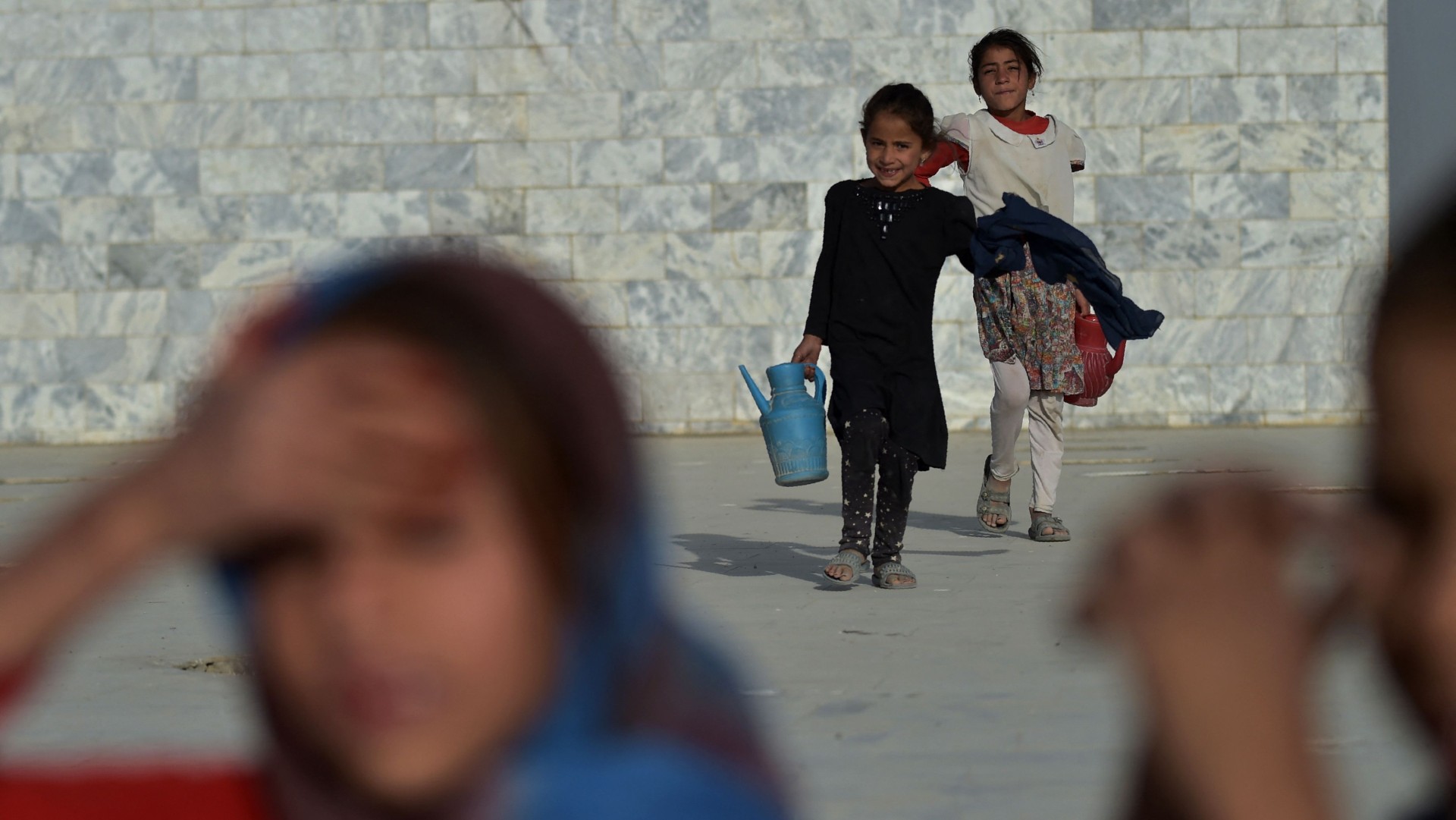
- 1. Afghanistan needs aid, but that won’t fix our broken nation. Uplifting girls will
- 2. Yes, we have to live with Covid – but not with such irresponsible ministers
- 3. Wearing denim will not solve the problem of injection spiking in nightclubs
- 4. The ‘anti-vaxx’ mob who attacked Michael Gove are an embarrassment to Britain
- 5. Hungary and Poland challenging the EU: European Disunion
A free daily email with the biggest news stories of the day – and the best features from TheWeek.com
You are now subscribed
Your newsletter sign-up was successful
1. Afghanistan needs aid, but that won’t fix our broken nation. Uplifting girls will
Shabana Basij-Rasikh in The Washington Post
on Afghanistan’s future
Afghanistan, “my homeland, is staring into the eyes of its worst humanitarian crisis in well more than a generation – a monster with multiple heads”, writes Shabana Basij-Rasikh in The Washington Post. The economic meltdown spurred by the Taliban’s takeover in August is coupled with an ongoing drought that “some experts classify as our worst in 35 years”. Last week, the G20 pledged humanitarian aid for Afghanistan to the tune of more than $1bn, despite the group’s unwillingness to recognise the Taliban’s government. “In this geopolitical ‘Sophie’s choice’, it is difficult to see the G20’s decision as anything other than an abhorrent but necessary one,” says Basij-Rasikh, the president of the School of Leadership, Afghanistan. “But I also see it as one that must encourage global policymakers to seek out new solutions to head off economic and environmental crises before they can metastasise. My suggestion to them is two words: educate girls.” These words “must become a central pillar of global policymaking”, she concludes. “Educated girls can heal economies and heal the planet.”
The Week
Escape your echo chamber. Get the facts behind the news, plus analysis from multiple perspectives.

Sign up for The Week's Free Newsletters
From our morning news briefing to a weekly Good News Newsletter, get the best of The Week delivered directly to your inbox.
From our morning news briefing to a weekly Good News Newsletter, get the best of The Week delivered directly to your inbox.
2. Yes, we have to live with Covid – but not with such irresponsible ministers
Philip Ball in The Guardian
on a get-out-of-jail-free card
This is “surely the strangest and in some ways the most disturbing period of the pandemic so far”, says science writer Philip Ball, “not least because there seems to be collective denial from the government and much of the public that we are still in a pandemic at all”. Despite rising Covid case rates, the Downing Street team refuses to implement Plan B, which includes vaccine passports and compulsory masks. Instead, they are “keeping a close eye” on the situation, which makes you “wonder what they would need to see before acting”, Ball writes in The Guardian. “We have been encouraged to regard Covid-19 as a kind of natural hazard about which we can do nothing more,” he adds. “But, as the rest of western Europe shows, there was never anything inevitable about our predicament.” Despite “clear advice to the contrary”, our government “still appears to believe that vaccines, which gave them such a shot of popularity, were a get-out-of-jail-free card that requires them to do nothing else”.
A free daily email with the biggest news stories of the day – and the best features from TheWeek.com
3. Wearing denim will not solve the problem of injection spiking in nightclubs
Katie Edwards in The Independent
on the wrong message
“As if women don’t already have enough to worry about on nights out. Now there’s an added dimension: spiking by injection,” writes Katie Edwards, whose drink was spiked when she was 17. A quarter of a century on, she believes nothing much has changed aside from new ways of administering so-called date rape drugs. “Women are still being told to amend their behaviour to ‘avoid’ and ‘prevent’ assaults as if it’s our fault for not being vigilant enough, not being assertive enough, not being sensible enough, not being sober enough, not covering our bodies enough.” Suggestions that women avoid bars and clubs, or wear hardy fabrics like denim to avoid being jabbed, “reflects a broader puritanical and profoundly misogynistic attitude to young women”, Edwards writes in The Independent. Nothing less than a “radical cultural overhaul” will rid us of the ingrained misogyny.
4. The ‘anti-vaxx’ mob who attacked Michael Gove are an embarrassment to Britain
Michael Deacon in The Telegraph
on unanswered questions
Footage of cabinet minister Michael Gove being ambushed in the street by anti-vaccine protesters just four days after Tory MP Sir David Amess was killed was “disturbing to watch”, says Michael Deacon in The Telegraph. “Think how Gove must have felt, as the mob descended. Like any seasoned politician, he naturally expects to be questioned, criticised and even mocked. But not to be harassed in the street by a horde of enraged thugs.” Gove escaped unharmed after police came to his aid, but MPs “should not have to live in fear, or put up with thuggish intimidation as they try to go about their business”. One of the “morons” who attacked Gove while marching on Westminster “could be heard defiantly chanting: ‘We shall not, we shall not be moved’”, Deacon notes. “Well, they clearly weren’t moved by what happened last Friday.”
5. Hungary and Poland challenging the EU: European Disunion
The Times editorial board
on rebellious members
The EU has a “stubborn problem”, says The Times editorial board. Two member states, Hungary and Poland, have adopted increasingly authoritarian models of government that conflict with the bloc’s values and institutions. Earlier this month, Poland’s highest court ruled that parts of EU treaties are incompatible with the country’s constitution. “The Polish government cannot be allowed to depict the issue as a case of an overbearing supranational institution overriding national sovereignty,” says the newspaper. In Hungary and Poland, it has become “commonplace” for the executive to dismiss judges and harass journalists on political grounds. “The EU is an alliance of sovereign states that have different policy priorities but must adhere to the principles of democratic government,” The Times argues. “It is on those criteria that Poland and Hungary have put themselves outside the orbit of the liberal West. They should be encouraged, cajoled and then, if necessary, pressured to return.”
-
 How the FCC’s ‘equal time’ rule works
How the FCC’s ‘equal time’ rule worksIn the Spotlight The law is at the heart of the Colbert-CBS conflict
-
 What is the endgame in the DHS shutdown?
What is the endgame in the DHS shutdown?Today’s Big Question Democrats want to rein in ICE’s immigration crackdown
-
 ‘Poor time management isn’t just an inconvenience’
‘Poor time management isn’t just an inconvenience’Instant Opinion Opinion, comment and editorials of the day
-
 ‘Irony’ as Zoom calls staff back to office
‘Irony’ as Zoom calls staff back to officefeature And other stories from the stranger side of life
-
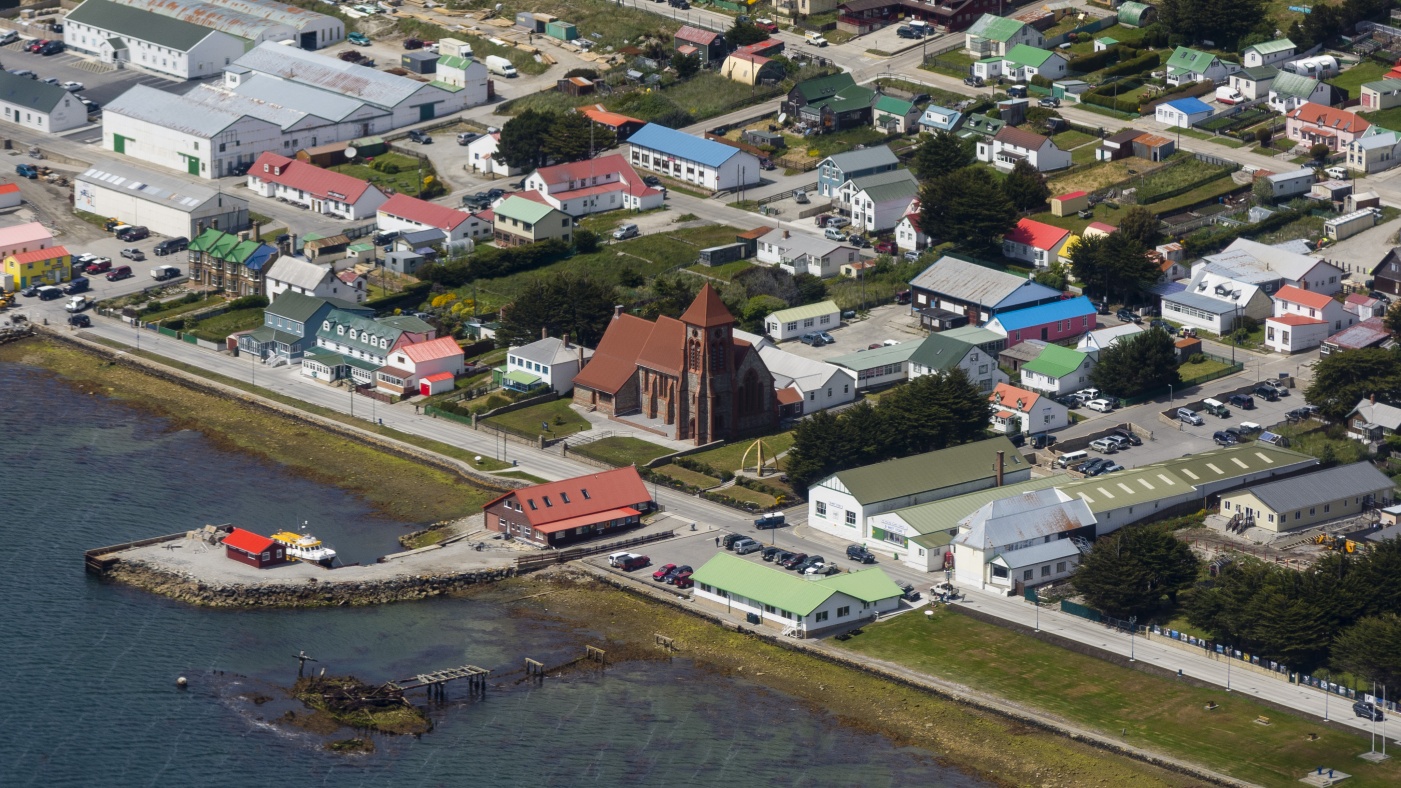 ‘Islas Malvinas’ and the new battle over the Falklands
‘Islas Malvinas’ and the new battle over the FalklandsTalking Point Argentina scores ‘major diplomatic win’ as EU refers to British territory by its disputed name
-
 The U.S. veterinarian shortage crisis
The U.S. veterinarian shortage crisisSpeed Read With an anticipated shortage of 15,000 vets by 2030, it will be harder to get care for pets
-
 Dutch king apologizes for country's role in slave trade
Dutch king apologizes for country's role in slave tradeSpeed Read
-
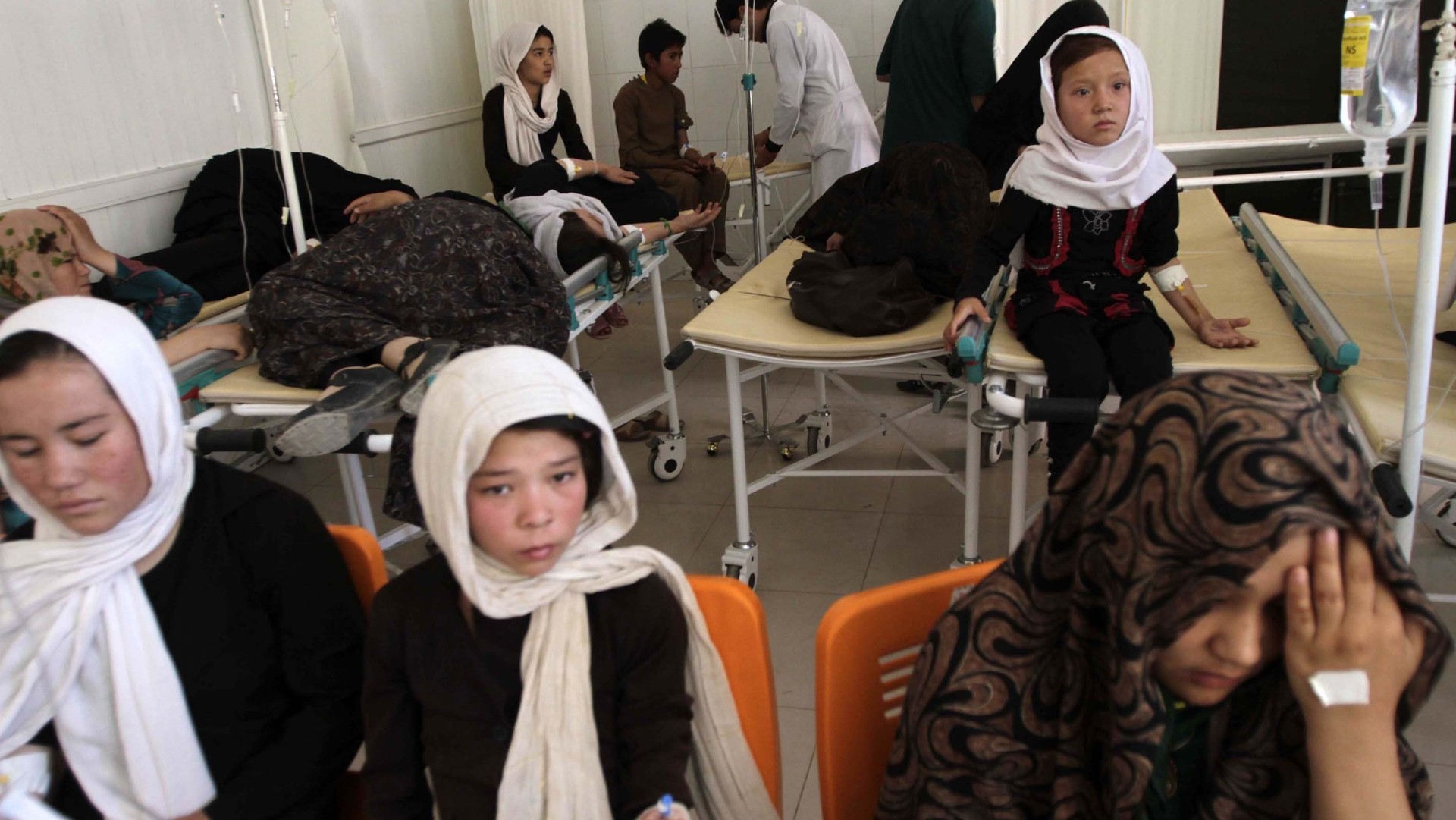 ‘We should be scared’: the poisoning of schoolgirls in Afghanistan
‘We should be scared’: the poisoning of schoolgirls in Afghanistanfeature Children hospitalised in allegedly deliberate mass attacks is latest in series of incidents going back decades
-
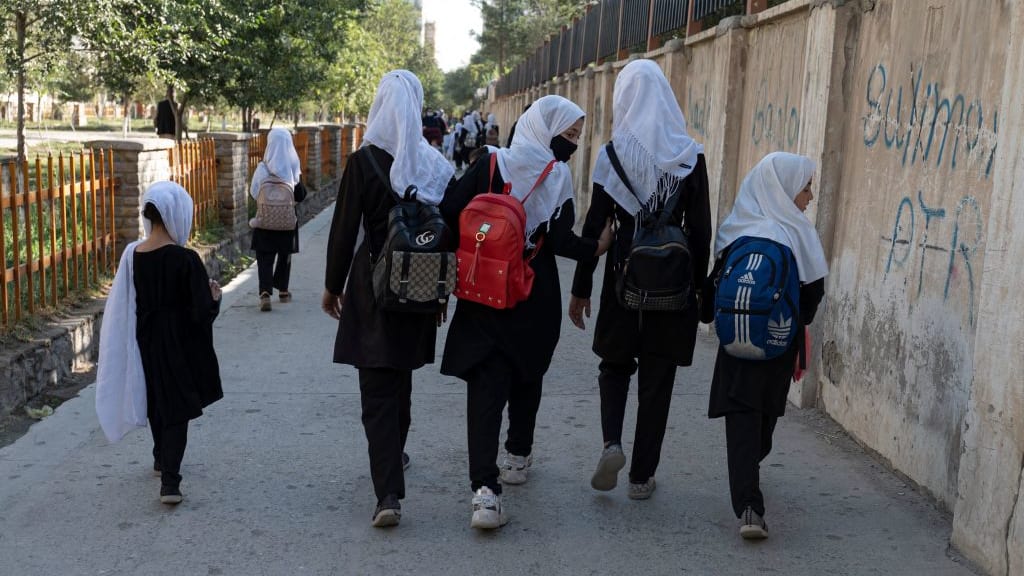 Officials believe dozens of girls in Afghanistan were deliberately poisoned at school
Officials believe dozens of girls in Afghanistan were deliberately poisoned at schoolSpeed Read
-
 Company teaches mask-wearers to smile again
Company teaches mask-wearers to smile againfeature And other stories from the stranger side of life
-
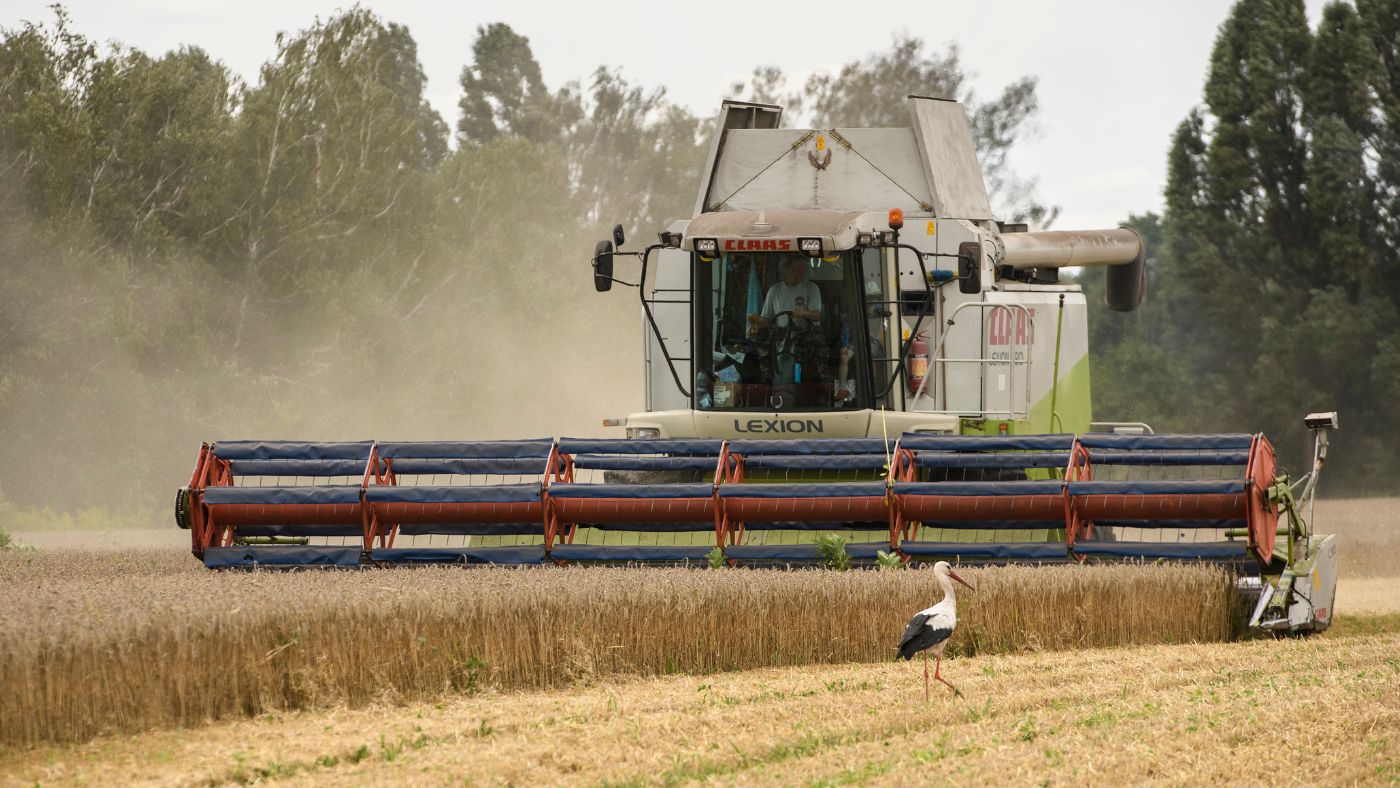 Ukrainian grain: rousing the fury of east Europe’s farmers
Ukrainian grain: rousing the fury of east Europe’s farmersfeature Three Eastern European countries have banned grain imports from the war-torn country